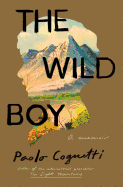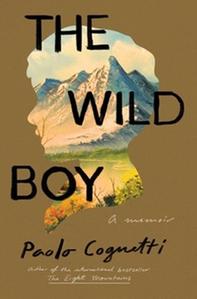
 Having just turned 30, Paolo Cognetti (The Eight Mountains) felt restless and unfulfilled in the city of Milan. He missed his childhood summers--the first 20 years of his life--spent in the Italian Alps. Inspired by Thoreau's Walden and the principled quest of Chris McCandless (subject of Jon Krakauer's Into the Wild), he rented a renovated but rustic cabin alone in a village of ruins in a high alpine valley and undertook to learn what the mountains had to teach, to "live deep and suck out all the marrow of life." After years of frustration, he hoped to write again.
Having just turned 30, Paolo Cognetti (The Eight Mountains) felt restless and unfulfilled in the city of Milan. He missed his childhood summers--the first 20 years of his life--spent in the Italian Alps. Inspired by Thoreau's Walden and the principled quest of Chris McCandless (subject of Jon Krakauer's Into the Wild), he rented a renovated but rustic cabin alone in a village of ruins in a high alpine valley and undertook to learn what the mountains had to teach, to "live deep and suck out all the marrow of life." After years of frustration, he hoped to write again.
The Wild Boy is a memoir of three seasons spent in that cabin, or, more accurately, spent hiking and exploring the mountains he remembered from when he was a boy--that wild boy he hopes to find again. The account opens briefly in winter, for background, as Cognetti makes his decision and locates his mountain home. Spring, summer and fall form the bulk of the story, which ends when he heads back down the mountain again: "I already knew all the dreams that I would have that winter."
In the interim, Cognetti gets to know the local flora and fauna; briefly attempts a vegetable garden; studies other writers' words; travels far and wide on foot; and makes new friends, human and otherwise. Thoreau writes of the pleasures of solitude, but this narrator finds he desires companionship--if they are the right companions. Two men in particular make strong impressions. His landlord, Remigio, is a creature of the mountains, with whom Cognetti literally makes hay. They share few life experiences, but quickly become fast friends, and Remigio turns out to suffer from writer's block as well: "This was the story I had strayed into, hoping to find how to write again." The other is an alpine shepherd named Gabriele, with whom Cognetti shares meals and wine. Gabriele will give him a gift at the end of their season together that Cognetti didn't know he needed.
The Wild Boy has a lovely and profound story to tell about connections to land and history and one another. In seeking simplicity and a new start in his life, Cognetti rediscovers timeless truths about the human condition. In addition to the strength of its contents, this is a stunningly beautiful book. It is a slim volume whose simply titled chapters (Snow, Hay, Vegetable Garden, Neighbors) carry significant wisdom and weight. Cognetti's prose is incandescent when writing about nature, about human history, about friendship and, perhaps most of all, about words: "That was why he had become such a voracious reader. He was looking for the words that would allow him to speak about himself." For any reader who has wondered about the next step, loved a mountain or a book, struggled with writer's block or stared in wonder into a forest, this astonishing memoir is necessary. --Julia Kastner, librarian and blogger at pagesofjulia
Shelf Talker: A city dweller returns to the mountains of his youth, and his gorgeous, reflective memoir is full of nature and humanity.

